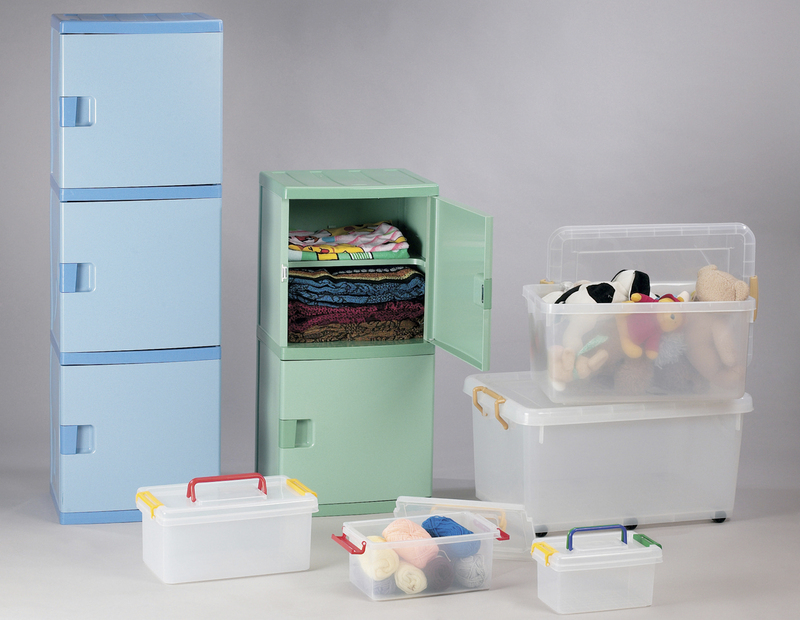Packing Strategies for a Hassle-Free House Move
Posted on 25/05/2025
Packing Strategies for a Hassle-Free House Move
Moving to a new home is an exciting adventure, but it also brings with it a unique set of challenges - particularly when it comes to packing. Mastering packing strategies for a hassle-free house move can save you time, effort, and unnecessary stress. Whether you're relocating across town or across the country, the right approach to packing will make the entire process smoother and more enjoyable.

Why Effective Packing Is Essential for a Successful Move
While relocating homes, packing can often be underestimated. It's not just about shoving your belongings into boxes; it's about organizing, labeling, and protecting your items for the journey ahead. Utilizing efficient packing tips for moving ensures your valuables arrive unharmed and that settling into your new home is seamless. Adopting well-planned packing techniques can also save you money by reducing the need for last-minute purchases of packing supplies or hiring extra help.
Benefits of Smart Packing Methods
- Reduced stress during transition
- Lower risk of damaged belongings
- Easy unpacking at your new home
- Efficient use of packing materials and space
- Cost savings from better planning and fewer moving boxes
Start Early: The First Rule in Packing for a House Move
One of the most overlooked - yet most valuable - home packing strategies is to start sooner than later. Procrastination leads to unnecessary stress and may result in careless packing or forgotten items. Here's how you can plan your process:
- Begin packing non-essentials a few weeks before moving day, such as seasonal clothing, books, or seldom-used kitchen appliances.
- Create a moving timeline that outlines when each part of your home should be packed up.
- Gather packing supplies in advance: sturdy boxes, tape, labels, bubble wrap, and markers.
- Declutter as you go - set aside items to sell, donate, or throw away.
Organize and Declutter: Less Is More When Moving House
Why Decluttering Makes Moving Easier
Relocating is the perfect time to part ways with unnecessary items. Before you start boxing up your life, systematically go through your belongings. Organized packing for a house move begins by sorting your things into four categories:
- Keep: Items you use routinely or have strong sentimental value.
- Sell: Gently used items you no longer want - consider hosting a garage sale or using online marketplaces.
- Donate: Clothing, furniture, and kitchenware that others may need.
- Discard: Broken, worn-out, or obsolete items.
Not only will decluttering reduce the number of boxes you'll need to move, but it will also help you start fresh in your new home.
Gather Quality Packing Materials
Using the right supplies is vital for protecting your possessions during transit. Essential packing materials for moving house include:
- Sturdy cardboard boxes in assorted sizes
- Heavy-duty packing tape and dispensers
- Bubble wrap, packing paper, and foam peanuts for padding
- Plastic wrap for securing items together
- Furniture covers for bulky items
- Marker pens for labeling boxes
- Zip-top bags for small hardware and accessories
For a sustainable move, consider sourcing used boxes from local stores or friends, and donate or recycle packing materials after settling in your new home.
Packing Room by Room: A Systematic Approach
The Best Way to Pack for a House Move
Packing can feel overwhelming, but breaking it down room by room keeps things manageable. Follow these packing tips for moving house to stay organized:
- Start with seldom-used rooms: Attics, guest rooms, and storage areas can be packed early.
- Use original packaging where possible: Electronics and appliances fit best in their original boxes with their inserts for protection.
- Take it one space at a time: Avoid mixing contents from different rooms in the same box.
Packing this way makes unpacking in your new house much easier - you'll know exactly where everything belongs.
Label Everything: Your Key to Easy Unpacking
Labeling is one of the most critical house moving strategies for both you and your movers. Each box should be clearly labeled with:
- Room destination (e.g., Kitchen, Master Bedroom, Bathroom)
- Brief contents description (e.g., "Pots and Pans" or "Winter Clothes")
- Fragile warnings if needed
- Numbering system (optional) to keep track of all boxes and ensure none are lost
Tip: Use color-coded labels or tape to quickly identify where boxes should go in your new home - for example, red for kitchen, blue for bedroom, etc.
Protect Your Most Valuable or Fragile Items
Certain possessions need special care. Here's how to pack delicate and valuable belongings for a house move:
- Use plenty of padding for dishes and glassware - bubble wrap, packing paper, or even towels work well.
- Pack fragile items vertically, not stacked, to reduce pressure at the bottom.
- Wrap electronics individually in anti-static bubble wrap or blankets.
- Label boxes as "FRAGILE" on all sides.
- Create a separate "Essentials" box or suitcase for crucial documents, medicines, chargers, and valuables to be transported by hand.
Special Packing Techniques for Artwork and Mirrors
- Wrap in brown paper and secure with painter's tape to avoid residue.
- Use corner protectors to prevent chips and cracks during the move.
- Place upright in specially designed boxes if available.
Space-Saving Packing Hacks to Make Moving Easier
Smart packing hacks for an organized house move can save space, money, and effort:
- Pack clothing in suitcases, drawers, or even on hangers in wardrobe boxes to minimize the number of boxes needed.
- Utilize every container - fill pots with spices, baskets with towels, laundry bins with cleaning supplies, etc.
- Keep hardware and screws for disassembled furniture in zip-top bags labeled with the furniture's name, and tape them securely to each item.
- Wrap liquid bottles in plastic wrap under the cap to prevent spills.
- Load heavy items (like books) in small boxes and light items in larger boxes to avoid breakage and make lifting easier.
Moving Day Preparation: What to Pack Last
Some things you will need up until the very last minute. When planning your ultimate house moving packing strategy, prepare a "Last Day Box" containing:
- Important documents
- Basic toiletries
- First-aid kit
- Snacks and bottled water
- Cell phone chargers and essential electronics
- Change of clothes and pajamas
- Pet supplies (if applicable)
- Cleaning supplies for the final once-over
Keep this box - or suitcase - easily accessible. Transport it in your personal vehicle on moving day, rather than the moving truck.
How to Pack for a House Move: Room-by-Room Quick Tips
- Kitchen: Wrap glasses and plates individually. Use dish towels for extra padding. Defrost your refrigerator 24 hours before moving day.
- Bedroom: Keep linens in large garbage bags or vacuum-seal for space. Pack off-season clothing first.
- Living Room: Remove legs from sofas and tables if possible. Place cords and remotes together in labeled baggies.
- Bathroom: Dispose of nearly empty bottles and expired products. Pack essentials and towels together.
- Garage/Shed: Safely pack tools in sturdy boxes with handles. Dispose of hazardous materials properly.
Using Professional Movers vs. DIY Packing
The size, timing, and budget of your house move may influence your choice between hiring professional packers and doing-it-yourself. Each option has its pros and cons:
- Professional Packing Services: Fast, insured, and convenient. Movers bring their own materials and handle heavy or delicate items with expertise. Ideal for busy people or those with high-value items.
- DIY Packing: Cost-effective, completely customizable, and allows you to sort and declutter at your own pace. You'll need to buy supplies, invest time, and take extra care to avoid mistakes.
If you opt for professional help, verify reviews, licenses, and insurance. If you're packing yourself, follow these best packing strategies for house moves to minimize risks.
Checklist: The Ultimate Packing Guide for a No-Stress House Move
- Start early and create a packing timeline
- Declutter each room before packing
- Purchase or gather quality moving supplies
- Pack room by room; don't mix rooms in one box
- Label every box with room, contents, and handling instructions
- Cushion fragile items generously
- Pack an essentials bag or box for first and last days
- Keep important documents and valuables with you
- Double-check all rooms before moving day
- Recycle or donate unused packing materials after unpacking

Common House Packing Mistakes and How to Avoid Them
- Poor box labeling: Leads to confusion and delays during unpacking. Always label thoroughly!
- Overpacking boxes: May cause them to break or become unliftable. Balance weight across boxes.
- Skipping the purge: Packing everything wastes effort and space. Declutter first.
- Forgetting about essentials: Pack a "first night" box so you aren't stuck rummaging on arrival.
- Poor protection of breakables: Take time to wrap and pad fragile items to prevent costly accidents.
Conclusion: Your Smoothest Move Ever
A well-planned move can be a positive, life-changing experience - and the secret lies in careful preparation. By following these clever packing strategies for a house move, you'll avoid common pitfalls and arrive at your new home with peace of mind and everything in perfect condition. Organized packing is more than just a convenience; it's the foundation of a hassle-free transition to your next chapter.
For more tips and moving guides, bookmark this article or share it with friends experiencing their own relocation journey. Moving doesn't have to be stressful - with these strategies, your next house move is sure to be smooth and successful!
Latest Posts
Optimal strategies for storing unused freezers
Essential Steps to a Stressless Home Relocation
Transform Your Space with These Pre-Move Cleaning Secrets





